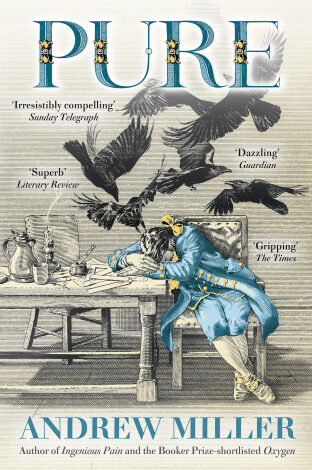Bristol writer Andrew Miller’s sixth novel and deservedly won the 2011 Costa Book of the Year.
It is 1785 and France is on the brink of revolution as the old order is about to be swept away. Jean-Baptiste Baratte, a young engineer of humble background, is ordered to exhume the vast and ancient cemetery of Les
Innocents in the poor Parisian quarter of Les Halles and demolish its church. Baratte, ambitious and forward thinking, “a disciple of Voltaire,” dreams of building utopias and as a man of reason, sees this job as a chance to clear the burden of history. However, in the hell of the exhumed cemetery, his beliefs are fundamentally shaken as he has to confront the nature of friendship, desire, love, betrayal, violence and loss.
Inthe back ground and understated in the narrative, are the Flemish miners who are brought in to do this terrible and dangerous work and on whose labour everything depends.Baratte, acting as an individual, is contrasted to the miners, acting as a class, who finally dramatically assert themselves before moving on to meet their destiny.
http://en.wikipedia.org/wiki/Saints_Innocents_Cemetery





